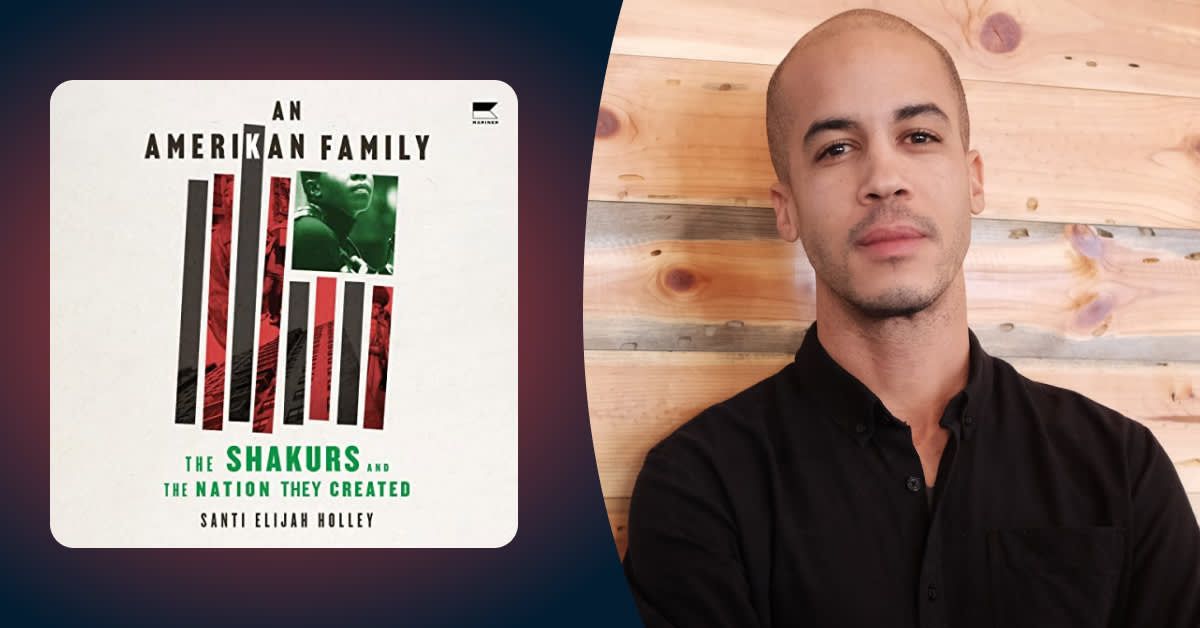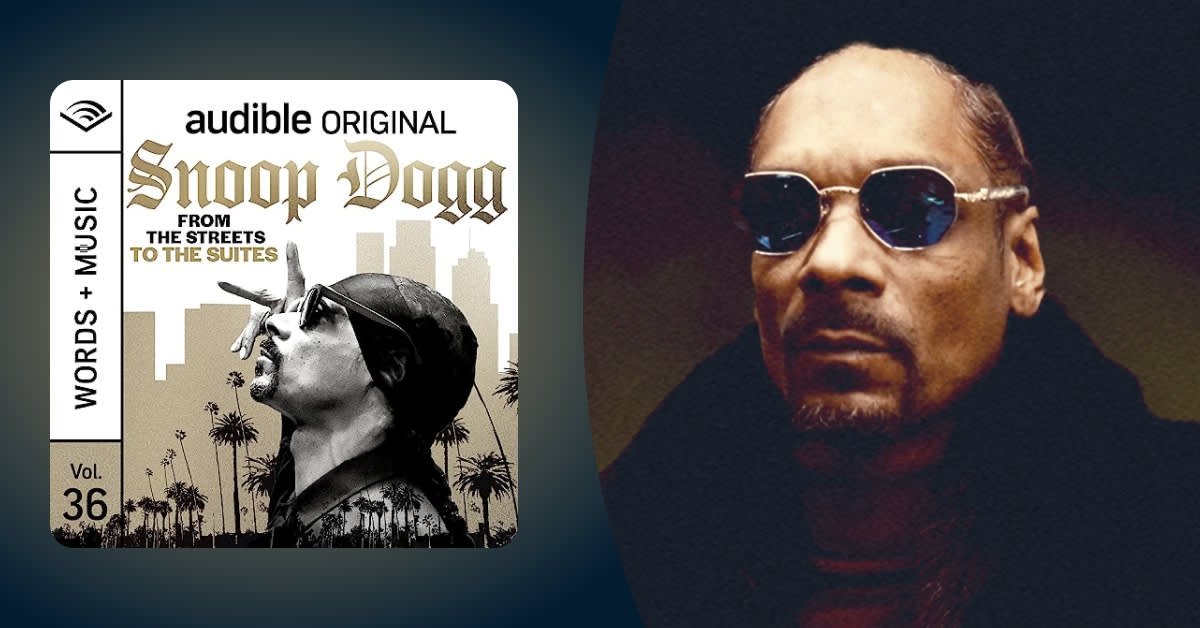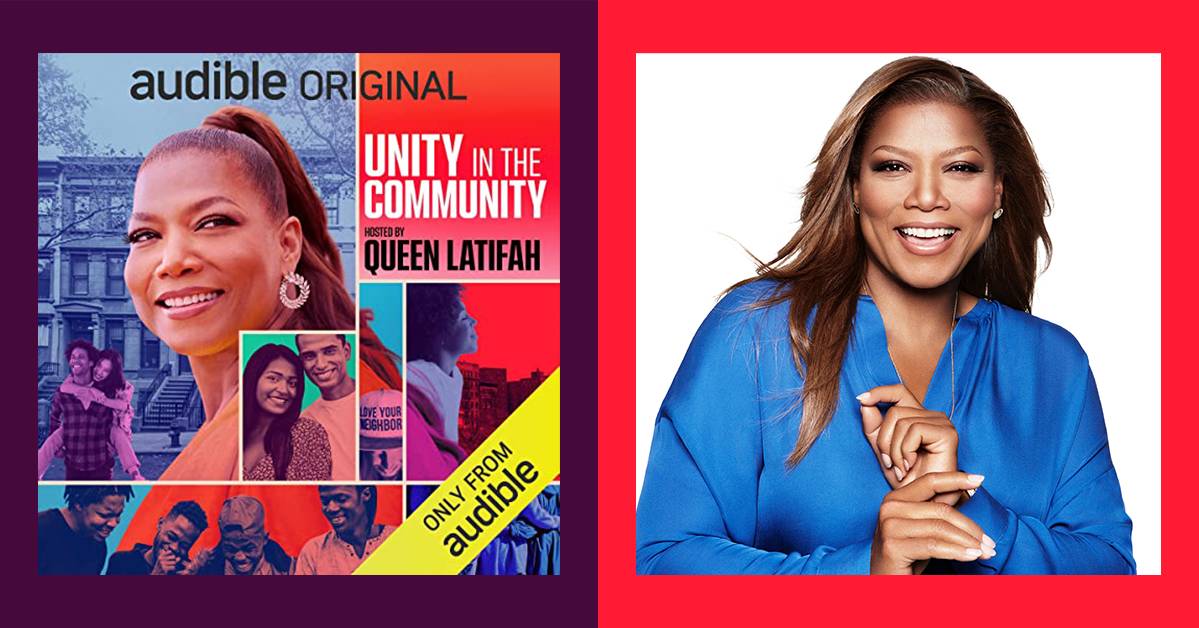Nearly three decades since the loss of Tupac Shakur in 1996, the rapper is the subject of multiple histories exploring his enduring legacy on hip-hop music and culture at large. But Santi Elijah Holley takes a wider view with An Amerikan Family, which argues that the Shakurs, and particularly Tupac's mother Afeni, are the key to understanding his life and legacy. The author spoke to us about his fascinating audiobook, which stars powerful performer Adam Lazarre-White, and his myriad influences and inspirations.
Audible: What’s your own history with Tupac, as a writer, journalist, and fan? Can you take us through your earliest exposure to him to the journey of writing the book?
Santi Elijah Holley: I’ve been a fan of Tupac’s music since I was a teenage troublemaker in the 1990s. I loved his raw and unbridled energy and his apparent ability to say and do whatever he wanted. Not until I grew older, became involved with social justice issues, and embarked on my career as a writer did I begin to probe Tupac’s lyrics more deeply, discovering just how insightful, prescient, and surprisingly vulnerable he’d been. As I worked on An Amerikan Family and learned more about his turbulent backstory, I came to understand his anger, his trauma, and the myriad pressures he’d faced. It made me appreciate the complexities of his music more than ever before.
Tupac Shakur is one of the most legendary hip-hop artists of all time. His family, as many of his fans might be surprised to learn from your book, had their own outsize impact on Black activism and liberation. What do you think it was about the family that made them so influential at the nexus of American history and culture—and was Tupac’s musical genius an offshoot of their influence or a bolt of serendipity?
The Shakurs were not a traditional family. They need to be understood as a tribe or a clan of individuals, united by their unwavering commitment to the liberation of Black people in America; they each adopted the surname after making this commitment. To become a Shakur was an honor, and with it came great respect from the community—and intimidation from law enforcement. Tupac was given his name by his mother, Afeni, shortly after his birth, so he had the unique position of growing up as a Shakur, raised by movement veterans and other survivors of the institutional war against his family. His brilliance as a musician reflects the responsibility he’d felt to honor his family’s legacy, as well as the burden of shouldering his formidable inheritance.
Have you seen (or perhaps were involved in) the FX documentary Dear Mama? What might fans of the series discover in An Amerikan Family that wasn’t explored in the doc?
I wasn’t involved in the making of Dear Mama, but I’m excited that us fans, young and old, are now making the connection between his music and the influence of his family, especially his mother, Afeni, who is getting her long-overdue flowers. From her influence as a Black Panther leader to her work as a tenants’ and legal rights advocate, Afeni Shakur was a force to be reckoned with. Readers of An Amerikan Family will not only learn more about Afeni’s life and work but much more about other powerful Shakur family members: Mutulu Shakur, Assata Olugbala Shakur, Lumumba Abdul Shakur, Zayd Malik Shakur, and the patriarch, Salahdeen Shakur.
We are HUGE fans of Adam Lazarre-White (Go Tell It on the Mountain, All the Sinners Bleed) here at Audible. Can you share any details about his casting or performance?
I was given a list of five or six potential narrators for this book, and Adam was my immediate first choice. His voice has the weight and resonance I knew would be necessary to tell a story this important. Truth be told, I might’ve been imagining his voice in my head all the while I was writing the book! He absolutely killed it. I couldn’t be happier with his performance.
Are you a listener of audiobooks or podcasts yourself? Any recent favorites you can recommend to our listeners?
I’ve recently begun listening to the novel Chain-Gang All-Stars, by author Nana Kwame Adjei-Brenyah and narrated by Shayna Small [among others]. I love Shayna’s delivery; it feels like she’s performing onstage for a rapt audience. She gives a personality and vivacity to her reading that I might not have appreciated by reading the words on a page.





